With more than 30 Cr students in India’s education system, an Academic Bank of Credits (ABC) is needed for educational mobility and efficient credential verification that can weed out fake degrees
The government is now developing an integrated system that combines academic achievements from formal educational channels and informal learning for smooth data sharing
While the ABC promises to revolutionise education by making academic credits easily accessible, it should address concerns regarding data security and large-scale inclusion to ensure a successful rollout
The Indian government has transformed the country’s cash-heavy financial ecosystem into a digital haven, thanks to the ubiquitous biometric identity cards (Aadhaar) and universal banking enabled via mobile. What matters most is the ‘inclusiveness’ – even people in remote areas can carry out digital payments without a hitch.
Revolutionising India’s payment system was tough, but the success was phenomenal. Now, the country wants to up its digital play and delve into another core area – education, to be precise. The goal is to build a robust, unified education ecosystem to power human resources and accelerate economic growth.
Built on the core vision of the National Education Policy or NEP 2020 to create a connected and multidisciplinary learning system, a new Aadhaar-like card is in circulation to implement the idea of ‘One Nation, One Student ID’.
Unboxing The ABC ID: A Digilocker For Authenticated Academic Credentials
Every student in India, from pre-primary to higher education, now needs to register for a unique 12-digit code to digitally store, manage and access all their academic credits, including degrees, diplomas and certificates, training and skilling details, co-curricular accomplishments or any other achievements obtained from formal educational channels and informal learning.
Known as ABC (Academic Bank of Credits) IDs, these Aadhaar-like lifelong student IDs are rolled out by APAAR (acronym for Automated Permanent Academic Account Registry) with the idea of authenticating students’ identities through their Aadhaar IDs and other official documents (overseas students can use passports).
In simple terms, it is a registry (broadly, a well-managed and regularly updated database) covering the country’s entire education ecosystem (including students, schools, higher education institutes, teachers, and skill providers), allowing students to store the credits earned in the Academic Bank of Credits in the Digilocker.
“The Academic Bank of Credits (ABC) is where the records of academic credits are deposited by institutions/universities. The account number or the ID to access the same will be called APAAR ID, which is permanent (like Aadhaar). Those seeking admission to educational institutions or applying for jobs only need to share their APAAR IDs, and their academic records can be authenticated in seconds,” said Anil Sahasrabudhe, chairman of National Educational Technology Forum, National Board of Accreditation and National Assessment and Accreditation Council and the man behind the APAAR project.
This allows the institution or the company offering admission, job or scholarship to decide quickly. Earlier, candidates had to send in photocopies signed by gazetted officers as part of the authentication process.
However, access to authenticated digital records means photocopying of documents will no longer be required and the risk of faked records will be minimised. Besides, data can only be uploaded by institutions and universities, which means anyone can rely on this data authenticated at the source. So, depositing credits at the ABC is like building a curriculum vitae.
The APAAR ID of a student is linked to the ABC, a digital repository developed in conjunction with the National Academic Depository (NAD). Whenever academic credits are generated and uploaded by educational institutions, whether after a full academic year, just one semester, or on any specific occasion, these get added to the ABC via the National Credit Framework (NCrF), responsible for the creditisation of all learning outcomes. As the ABC data is deemed official nationwide, access to academic information and verification will be fast and seamless.
To speed up the procedure, the Union Ministry of Education (MoE) has recently notified state governments and UTs to implement APAAR ID. All registered educational institutions have been asked to procure parents’ consent and keep their students’ degrees and awards in the digital locker to ensure authenticity and safe storage.
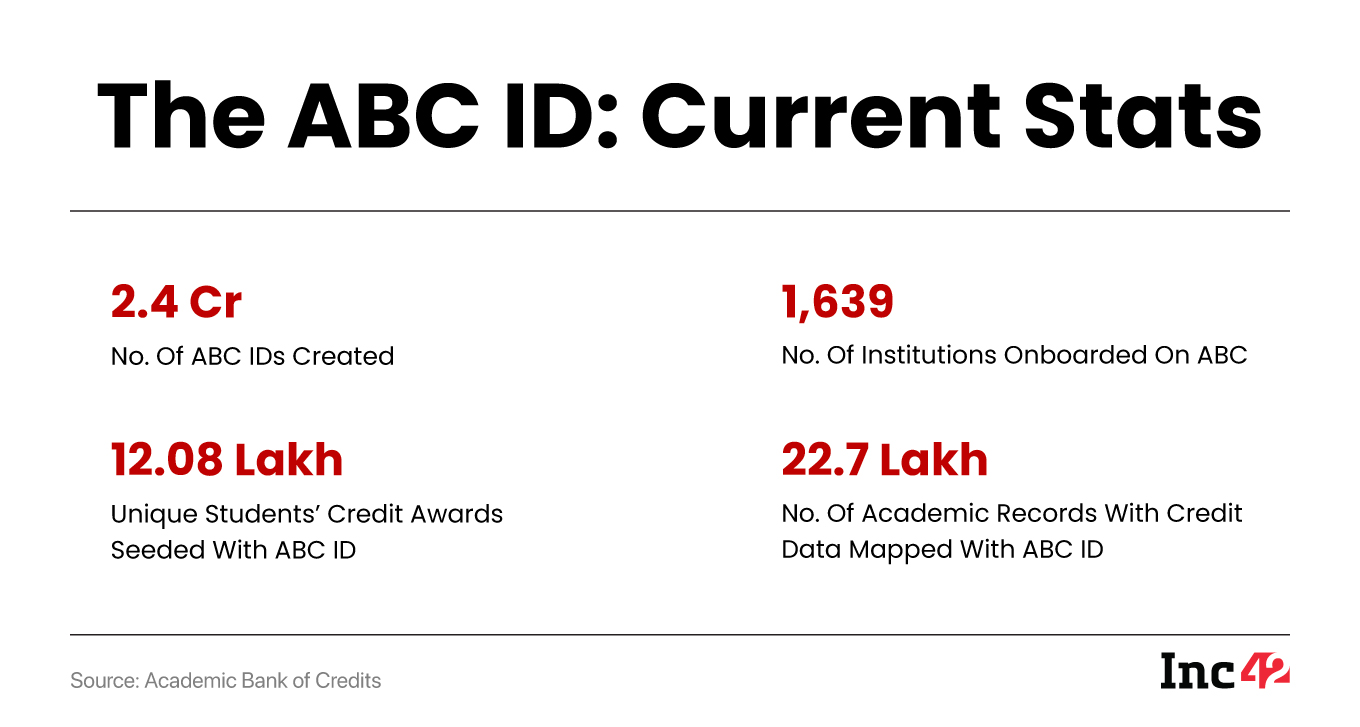
Globally, academic credits are useful in many ways. They keep track of a student’s progress, help evaluate the efficacy of an education system/course, propel one to a higher programme, help get a transfer to another institution without losing previous credits and even enable overseas studies as these are internationally recognised. Most importantly, it is the non-tamperable proof of one’s prior studies and outcomes at each level, often sought by companies, academic institutions and governments for candidate verification.
Understandably, various critical components, including NCrF, NAD and APAAR, are working in tandem to combine formal, non-formal, and informal learning modes. The aim is to break academic barriers (art, science and commerce streams suffer in silos here), recognise efforts through transparent educational credits for easy mobility across domains, provide multiple entries and exits for smooth progression, and ensure efficient tracking of one’s academic journey.
The Academic Bank Of Credits: The Pain Points It Promises To Eliminate
For context, India is home to nearly 15 Lakh schools, three lakh secondary and senior secondary schools, 43.8K colleges and a little over 1,100 universities where more than 30 Cr students study.
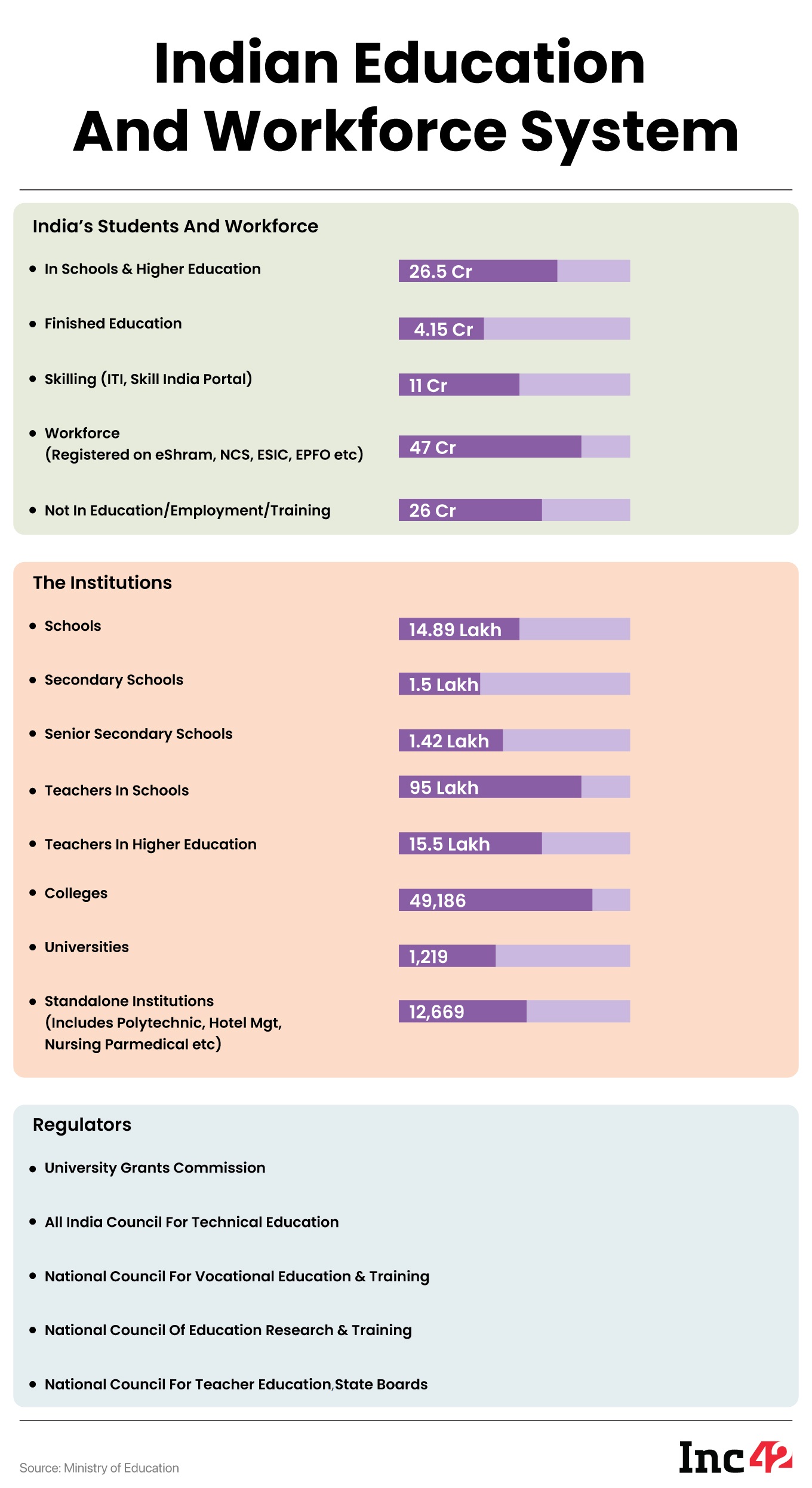
Given these numbers, verifying credentials for admissions, transfers and employment-related checks remains a time-consuming and expensive affair for institutions and companies. As a result, fake degrees abound throughout the country and go unchecked for years. In the past, the police busted several rackets that used to issue thousands and lakhs of fake degrees and certificates, charging around INR 1 Lakh per document.
Also, students tend to lose original documents during interviews and verification, and retrieving a copy is not hassle-free. One has to file an FIR reporting the loss and then request the institution concerned to release another copy. It may take weeks or months to repossess the precious document.
However, the ABC (in collaboration with the NAD) can quickly address these challenges by offering instant access to digitised and authenticated credits as often as required. The data can be shared with third parties, eliminating the need for physical document transfers.
Additionally, when a student completes a course or reaches a significant educational milestone, their academic credits are prepared and directly uploaded to the ABC by the educational institution, thus guaranteeing maximum authenticity compared to other databases. As for changing schools/colleges, the data within the ABC system seamlessly migrates to the new organisation.
Generating an ABC ID is a straightforward process via the DigiLocker platform. After logging in, a student can search and select the educational institution, complete the registration process and set up the unique ABC ID.
Not a duplication of efforts: DigiLocker allows people to store digital documents securely. So why do we need a separate ID to manage educational data?
Speaking to Inc42, Slideshare founder and DigiLocker architect Amit Ranjan said, “DigiLocker is a horizontal platform [to store all sorts of documents such as educational certificates, driving licence, Aadhaar card, vehicle registration papers and more]. But the ABC and NAD are vertical. Developed on the DigiLocker platform, they solve vertical problems and offer solutions like an academic credit system.”
Seconding Ranjan, Sahasrabudhe confirmed that Edulocker is being developed as a vertical on digilocker platform.
How India’s Education Credit System Is Built, Block By Block
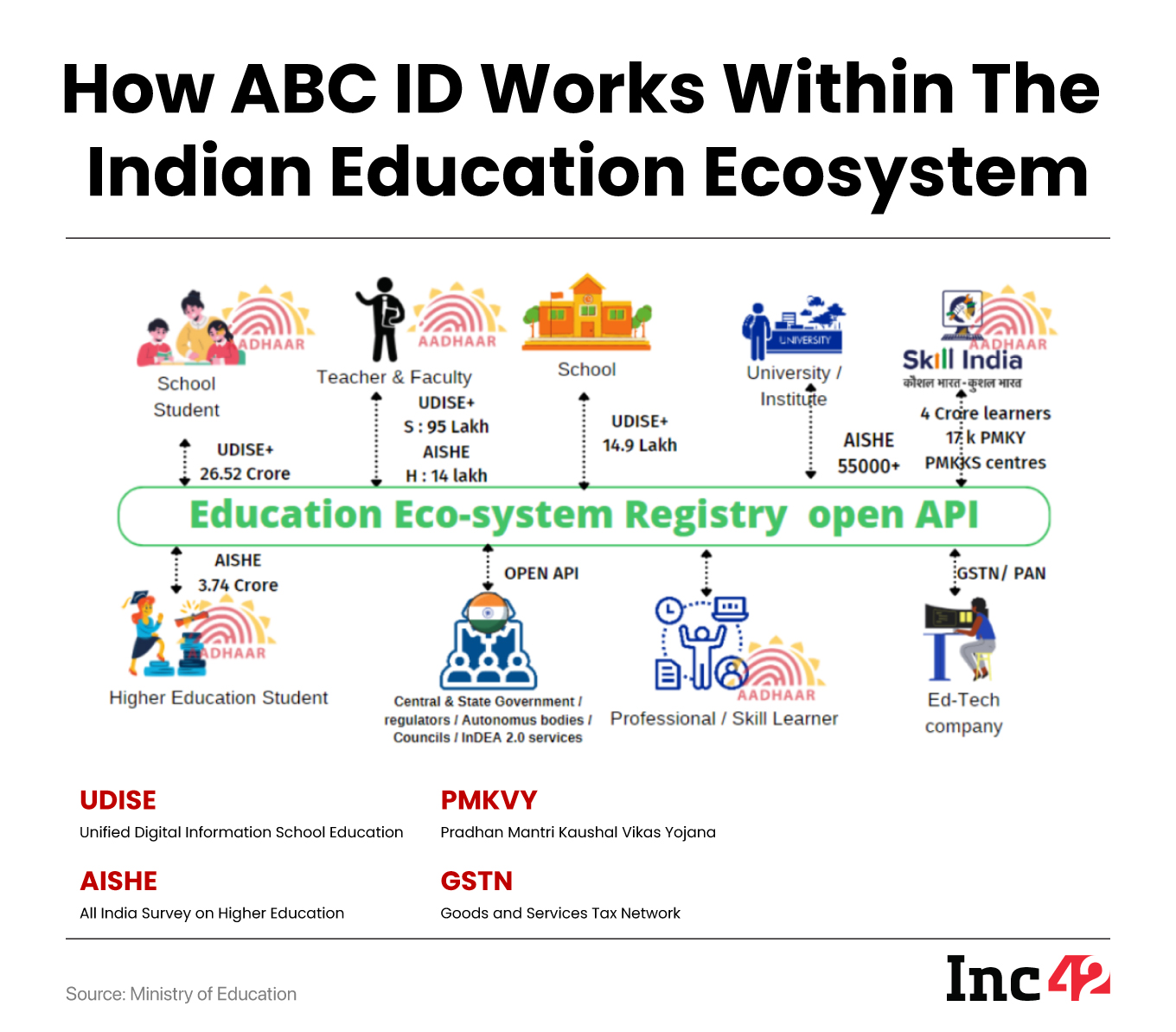
NEP 2020 tabled a comprehensive policy framework, including a system of educational credits to enable inclusive learning, interdisciplinary mobility and reliable tracking of academic progress. Similar to how financial credits determine one’s eligibility for a loan, educational credits would help institutions and companies determine their candidate’s eligibility.
Two significant initiatives, the National Credit Framework (NCrF) and APAAR have been introduced to achieve these goals and develop an interconnected and flexible environment for multidisciplinarity and diverse learning needs. These initiatives cover all formal, non-formal and informal educational modes and ensure a strategic thrust on technology-driven interventions to streamline the current system, standardise content and set up guidelines for digital teaching-learning.
The new framework will promote a much-needed equivalence between academic and vocational domains. Its key objective is to provide seamless mobility between school education, higher education and vocational training, thus creating various pathways for students to progress and achieve their full potential.
The credit system designed by the NCrF awards 40 credits for a full study year and details credit hours. This helps integrate skill-based/vocational training with mainstream education for better flexibility and outcomes.
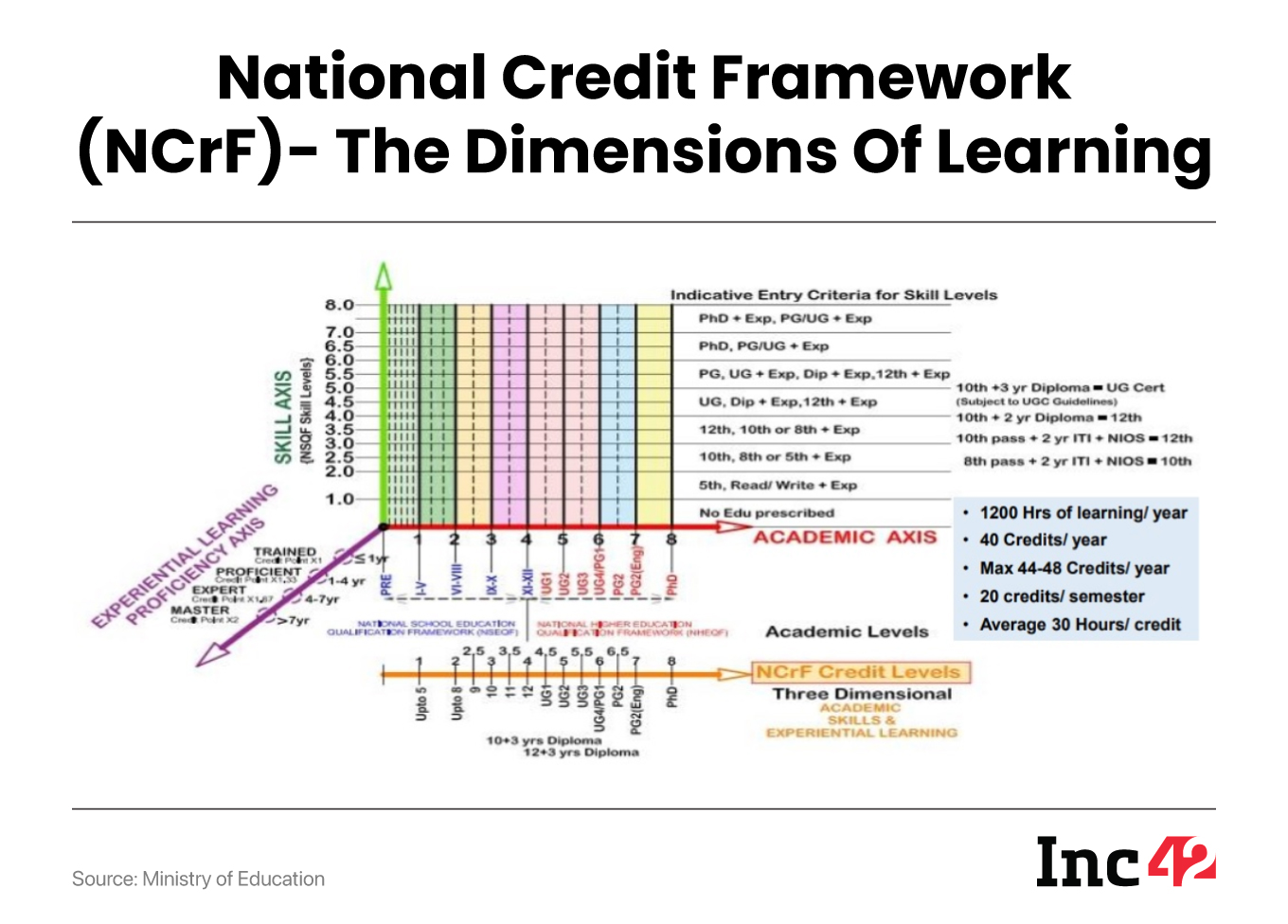
“With this initiative, we are going into a granular level, where credits for specific courses offered by institutions (even those like Microsoft and Google) not classified as traditional universities) can be recognised and integrated into what we refer to as the Academic Bank of Credits. This concept is analogous to our banking system, where we deposit and withdraw money as needed. Similarly, we envision an ABC where students can accumulate and redeem their credits when necessary,” explained Sahasrabudhe.
In a country like India, where 16-39% of students drop out at various levels and fail to get recognition for the hours they studied, the ABC system under the NEP 2020 is set to help significantly and earn certifications for their efforts even when they do not complete degrees/diplomas. Most importantly, if they decide to resume studies, they need not begin from scratch, as the credits earned will allow them to start from where they left off.
Of Data Leaks & Security Breach: Will APAAR-ABC Go The Aadhaar Way?
Only recently, the media was abuzz with the massive Aadhaar leak of 81.5 Cr Indians. Time and again, these data leaks displayed critical information such as name, address, mobile number and more. As Aadhaar is mandatorily linked with PAN, health ID and now with APAAR-ABC, cybersecurity experts say there can be heightened risk to one’s data privacy. Some parents and students have also raised concerns about sharing their Aadhaar details (currently optional) for APAAR-ABC.
However, the government has reassured that the information furnished by students will not be disclosed to third parties, except for entities engaged in educational activities. For instance, the Unified District Information System for Education Plus (UDISE+) database, which manages student, teacher and school data, will have access to the information.
Institutions or companies can access APAAR ID data only with the user’s explicit consent, which the student can revoke at any time.
“Aadhaar is necessary for establishing an individual’s authenticity so that the same person does not get two IDs or multiple people are not given the same ID. So, Aadhaar is to be used only to establish the identity of a student. Thereafter, it will never be required. It is only used for verification purposes,” clarified Sahasrabudhe.
Until the authentication, a provisional ID would be provided, he added.
More importantly, students can stop sharing their information with these entities at any time, and data updates will cease upon the withdrawal of consent. However, previously processed personal data will remain unaffected.
Although data security will likely improve over time, there is still a critical issue. Will the APAAR-ABC ecosystem cover the most vulnerable and the underprivileged – the out-of-school children who have never enrolled? The NEP seeks to reach a 100% gross enrolment ratio for preschool students by 2030, but the data looked grim only a couple of years ago.
According to a 2019 National Sample Survey Office (NSSO) report, 32 Mn Indian children aged up to 13 never attended school. A Statista report also revealed that between June 2019 and April 2021, only 88.2% of the boys (aged 6-17) and 86.5% of the girls in the same age group attended school in India.
Again, one in four of the differently abled children in the 5-19 age group never attended any school per a 2019 report by UNESCO and Tata Institute of Social Sciences, while three-fourths of five-year-olds with disabilities were not in school. Add to that the hours women spend on skills training at self-help groups or the education systems run by open schools and minority groups, and the non-inclusive areas tend to get bigger.
Without a comprehensive quantification of all informal channels and their inclusion in mainstream education, even the vastly improved NEP 2020 or a nationwide registration and credit system similar to Aadhaar may not see the desired outcomes.
APAAR To Bring A Breath Of Fresh Air To Indian Edtech Startups
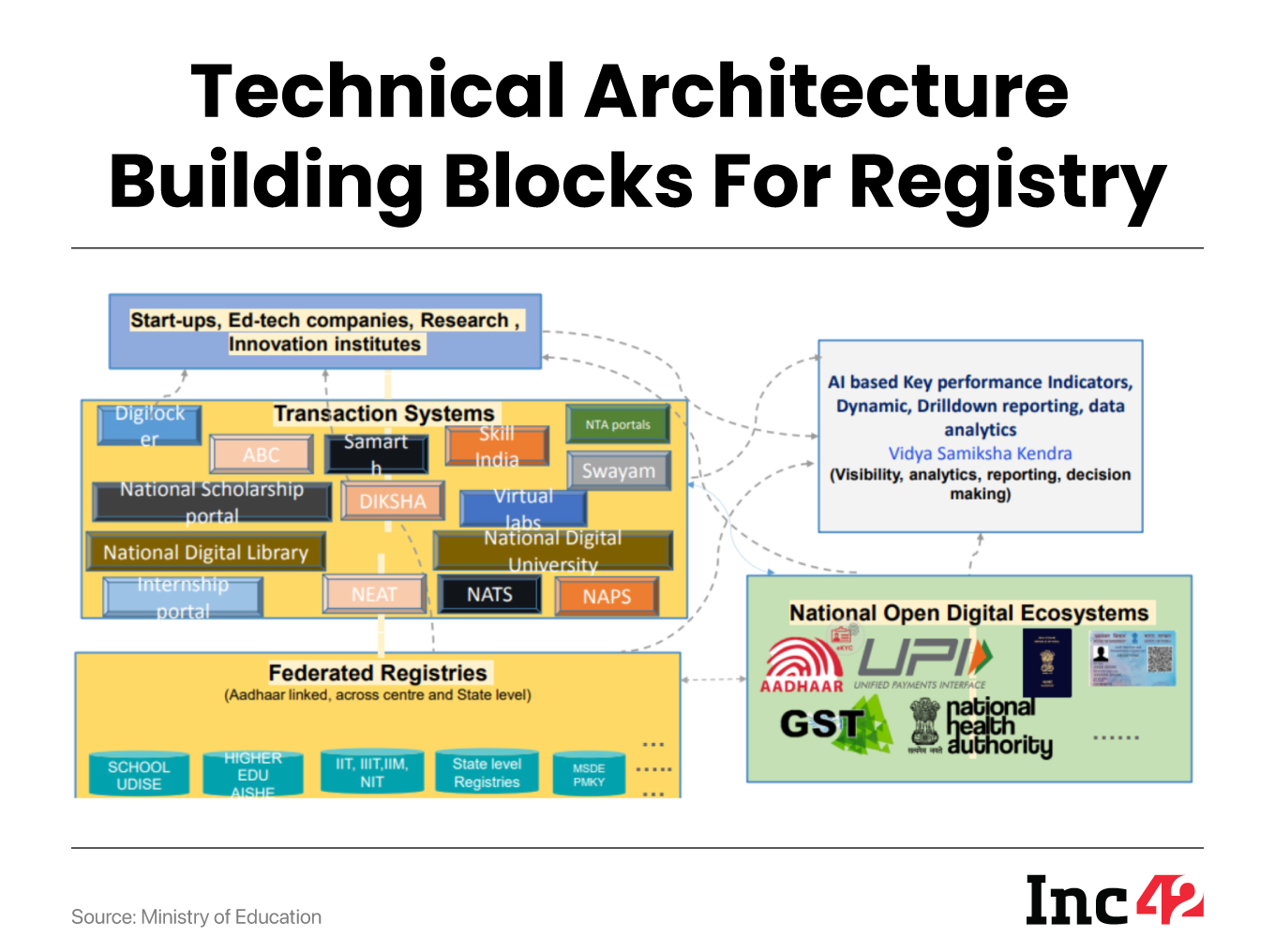
The implications of the APAAR ID for Indian edtech startups are significant and manifold. Experts think APAAR, clubbed with NEP 2020, may drive edtech in India in the same way UPI (United Payments Interface) saw the emergence of new fintechs.
“Imagine how PhonePe, Google Pay, Paytm and other fintechs came up based on the UPI ecosystem and changed payments in India forever. APAAR will trigger a similar wave of change,” said Sahasrabudhe.
The key areas where edtech startups could play a critical role include:
Customising learning through enhanced access to student data: The APAAR ID grants edtech startups access to a comprehensive and standardised set of student data, encompassing academic records, attendance and extracurricular activities. This wealth of information is valuable for designing personalised learning experiences and tailoring educational content to meet individual requirements.
Improving student tracking and analytics: With the help of APAAR ID, edtech startups can monitor students’ progress systematically and track the areas where additional support is required. This data plays a crucial role in developing predictive analytics models to identify students who may be at risk of falling behind.
Streamlining student enrolment and verification: The APAAR ID simplifies student enrolment and verification processes for edtech startups. This streamlined approach saves time and resources and gives students easy access to learning materials.
Mitigating fraud and data misuse: This unique ID is crucial in reducing fraud and misuse of student data as it provides a secure, tamper-proof storage and access system for student records. Implementing the APAAR ID ensures the responsible use of student data and safeguards privacy.
In essence, the APAAR ID has the transformative potential to revolutionise a fragmented Indian education system by establishing a secure, standardised and accessible framework for updating, storing and sharing student data as and when required. However, implementing the system nationwide in a hurry can cause glitches similar to those of Aadhaar.
Even after a decade, enrolling for Aadhaar or updating data takes repeated efforts or leads to inordinate delays. Add to that repeated data leaks, which have given rise to Aadhaar-related banking scams all over the country.
Similar time lags and security breaches would beat the purpose of introducing a seamless and secure educational ecosystem where data can be updated, accessed and verified at a click without the fear of misuse. Otherwise, the government will be compelled to raise a red flag for APAAR users while citizens’ data and privacy rights will be at stake, again. For now, it is wait and watch.
[Edited by Sanghamitra Mandal]




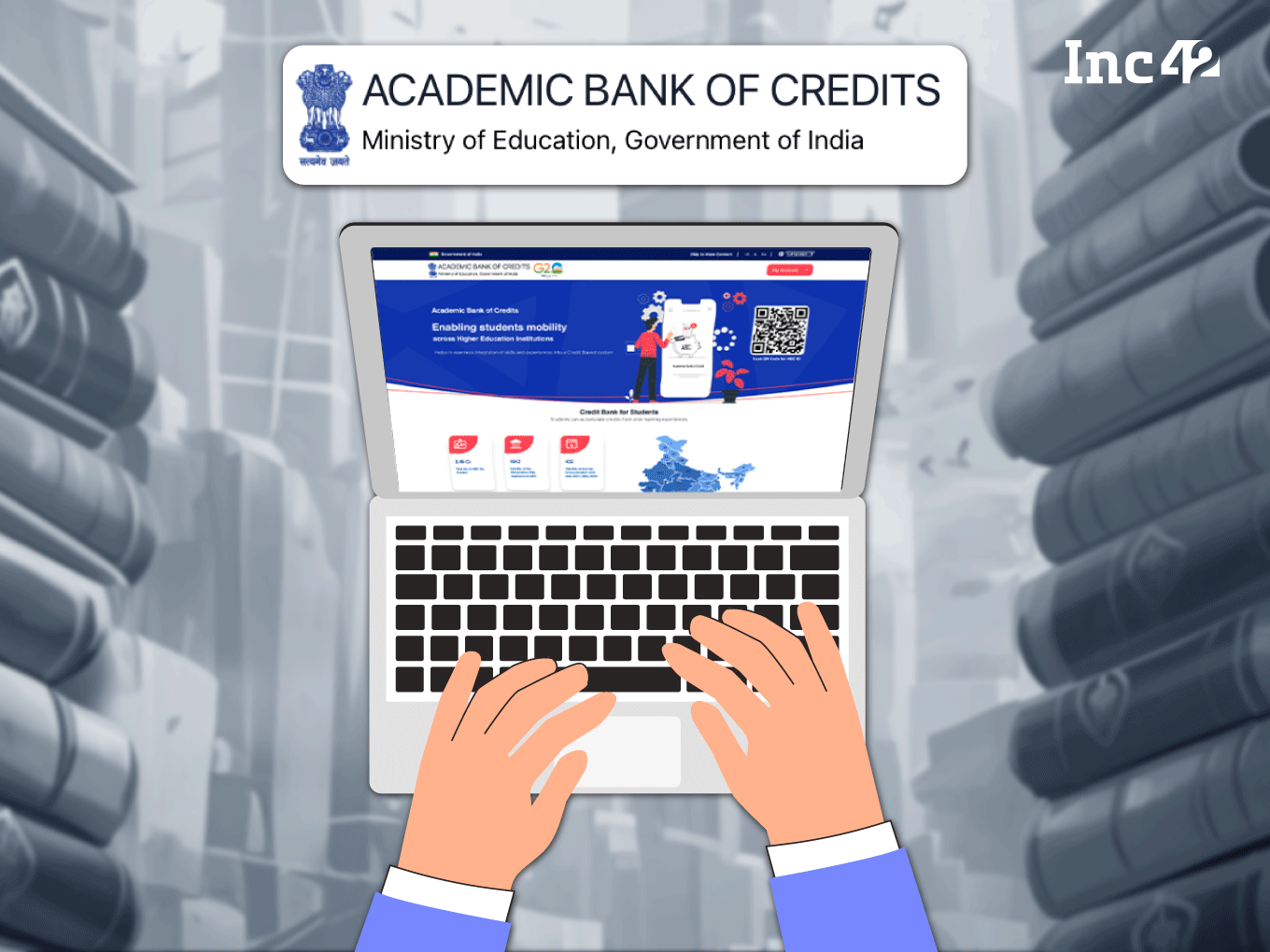



























 Ad-lite browsing experience
Ad-lite browsing experience